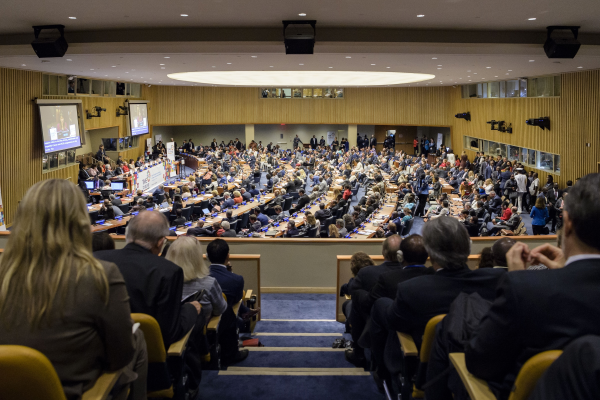By setting targets for accelerating action, in the upcoming UN Political Declaration on NCDs and Mental Health to be adopted on 25 September, governments have taken a step forward in acknowledging the scale and the urgency of the NCD epidemic worldwide, but there remains critical gaps that require urgent action.
Targets on prevention, primary health care, financing, governance and surveillance are important elements of the draft declaration to be adopted next month, show a commitment to deliver and provide the basis for measuring progress.
The last decade has been coined as a policy success, but an implementation failure. The fourth UN High-Level Meeting on NCDs and Mental Health (HLM4) has to change this, renewing commitments to cost-effective policies that we know work. The draft declaration to be formally endorsed at the HLM4 following three months of negotiations in New York, signals that governments understand action cannot wait. This is welcome, but but the mandate for the HLM4 was clear: to deliver a concise, action-oriented Declaration that builds on previous commitments and drives political will through measurable global targets and commitments.
The draft recognises urgency, yet falls short of crucial commitments. At a time when mobilising domestic resources is critical for national action, one of the most notable omissions is strong language on health-promoting fiscal policies such as taxes on tobacco, alcohol, and sugary-drinks, proven measures that save lives and raise revenue.
Governments have committed to financial protection targets aimed at reducing the devastating burden of out-of-pocket expenses for medicines and treatment that push millions into extreme poverty every year. This marks a step forward.
Civil society welcomes the reference to lived experience; however, the draft mentions civil society only once. Meaningful, structured participation of people living with NCDs and their communities and organisations, must be built into policy design and delivery to ensure impact at every level. At this critical juncture, civil society and people living with NCDs worldwide are speaking with one voice: it's time for leadership, funding and accountability.
Backed by more than 3 million voices from over 115 countries, global health advocates are calling on governments to invest in cost-effective solutions, deliver on their commitments, and put people first. The Time to Lead campaign elevates civil society voices in the lead-up to the HLM4, demanding bold leadership from governments and action to tackle the world's biggest killers.
Every year, 43 million people die from NCDs. These deseases—which include heart disease, cancer, diabetes, chronic respiratory conditions, and mental health—account for over 75% of deaths worldwide. Despite their prevalence, NCDs are the most underfunded global health issue relative to the billions of people impacted.
NCDs affect everyone, everywhere, but they disproportionately impact people living in low- and middle- income countries (LMICs), where access to care is limited. Among people in LMICs, NCDs and injuries kill more people under 40 than HIV, TB and maternal deaths combined.
Use the power of social media to call on your community, key stakeholder organisations and governments to #ActOnNCDs. Let them know that now is the time to #LeadOnNCDs.




